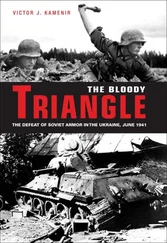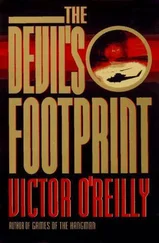Yes, Burma, Cuba and North Korea have trafficking problems, but in terms of volume they’re far eclipsed by many countries on Tiers One and Two. Ironically, Burma lies next door to Thailand, whose capital city, Bangkok, is internationally notorious as the sex pit of Southeast Asia. It is the number one destination for sex tourists from North America, the United Kingdom, Europe and Japan, and Thailand’s government has dragged its feet for decades on the situation. Yet Thailand gets a Tier Two rating while Burma, a U.S. political target, gets blacklisted on Tier Three.
Then, of course, there is North Korea. It’s almost as though the decision-makers at the State Department mistakenly typed in North when they meant South because South Korea is the one with the egregious trafficking problem. Women from
Russia, Ukraine and the Philippines are trafficked to bars outside U.S. military bases in South Korea, and these bars continue to thrive with the military’s patronage and the government’s full knowledge and support.
Lastly, there’s Cuba, not really a trafficking destination but certainly a magnet for doughy middle-aged men from Canada and the U.S. who throng the beach bars with greenbacks in hand with one objective—to purchase poor and desperate young women and girls. Funny, isn’t it, that for the despicable actions of American men the U.S. government slams Cuba! Miller was called on that very point on December 9, 2003, when he was asked at a foreign press briefing how the U.S. can expect Cuba to solve its growing prostitution problem if so many American men head there on sex tours. Miller acknowledged the problem: “Yes, Americans go to Cuba,” he conceded.
And interestingly enough, if you look at the situation in Cuba, Cuba received a poor rating in the report, and this gets back to two subjects that we’ve addressed: one, sex tourism; and the other, government complicity. Cuba, I assume, for reasons of attracting [hard] currency, has an extensive sex tourism industry. Anybody that doubts it can get on the Web. And this sex tourism industry, we believe, involves minors. And this sex tourism industry, given the nature of the Cuban government, involves government complicity, because the tourism industry is controlled by or affiliated with the government. So that is my office’s concern about Cuba.
If Miller is truly concerned about doing something about the unfortunate situation of young women in Cuba, he should start by cleaning up in his own backyard and nail American tourists who flock to the country for cheap sex.
In short, the decision by the Bush administration to blacklist Cuba, North Korea and Burma for trafficking smacks of other foreign policy interests. The U.S. is using trafficked women as political pawns. For that, the U.S. State Department and the Bush administration should hang their heads in shame.
On June 14, 2004, the State Department released its fourth annual TIP report. Secretary of State Colin Powell described the tome, which covers 141 countries, as “the most comprehensive worldwide report on the efforts of governments to combat severe forms of trafficking in persons, or modern-day slavery.
“Its findings,” Mr. Powell noted, “will raise global awareness and spur countries to take effective actions to counter trafficking in persons.”
The major accomplishment? In their collective wisdom, the people at the State Department decided that rather than downgrade a horde of slothful nations to Tier Three, they would simply forge another tier. Well, it’s not exactly a full-fledged rung. It’s a sub-tier of Tier Two. In other words, the real Tier Two is for countries that are making “significant efforts” to end trafficking but are not quite there, while the new Tier Two “watch list” is technically a demotion. It’s reserved for nations not deserving a firm placement on the Tier Two rung but deemed not quite bad enough to be relegated to the disgraceful bottom tier. According to the report, this sub–Tier Two is for countries in which “the absolute number of victims of severe forms of trafficking is very significant or is significantly increasing; or there is a failure to provide evidence of increasing efforts to combat severe forms of trafficking in persons from the previous year.”
Among the forty-two nations making the dubious skid to the Tier Two watch list are Russia, Greece, Turkey and Serbia, as well as Japan, Thailand and India. However, by any reasonable standard, the majority of the seventy-seven countries on both Tier Two lists belong on Tier Three. In their defense, State Department officials stressed that the point of the ranking exercise is not to sanction countries, but to prod them into action to deal with what Powell called the “awful business” of trafficking in human beings. But it has been four long years of cajoling, prodding and nudging, and most countries are still doing less than the bare minimum to stop the rape. In this latest report, ten countries were cited for failing to deal with the trafficking problem and were relegated to the third tier, including yet again Burma, North Korea and Cuba. Only twenty-five nations—chiefly in Western Europe—were deemed to meet the United States’s standards. The fact that these are the prime destination nations for trafficked women and girls raises many questions about the decisions behind those rankings.
THE TIP REPORT was designed to save women and girls from being sold into the global flesh trade. It was supposed to be about having the courage and vision to take a firm and even bold stand. It was supposed to be about leadership. It was supposed to be about accountability. Sadly, it’s just brimming with crocodile tiers. Despite all the hoopla and sabre rattling, the U.S. has degraded the process to little more than a diplomatic game. The Bush administration and the State Department appear content to dance the diplomatic tango with a host of nations that clearly have despicable records in dealing with the trafficking of women and girls. On this issue, one thing must remain clear: there is no dance for rape.
The 2003 TIP report has confirmed the worst. The State Department’s pronouncements that foreign governments are making serious efforts and finally coming around rings hollow. The global trafficking situation has not improved.
We don’t need another report or international conference on trafficking to get a sense of the situation. The picture has been painted repeatedly by untold numbers of victims. In my research for The Natashas, I spoke to many of them. Their stories chilled me to my very core. The enormity of their suffering was almost impossible for me to fathom. I am grateful to those who found the courage to talk to me. I know it was extremely difficult for them to relive the nightmares and recount the indignities they were forced to endure, especially to a man. To me, they are the heroes in this sad epic, and hopefully the stories of their suffering and humiliation will finally trigger a firm worldwide commitment to put an end to this monumental human rights tragedy. For every day, hundreds of thousands of girls and young women are being raped in brothels around the world. Their lives are being stolen from them. Their bodies are being ravaged, their spirits broken. That alone, in the name of human decency, should compel every nation to do everything within its power to stop the traffic.
MANY PEOPLE have had a hand in writing this book and they deserve a lot of credit. First and foremost, I want to thank my family, Anna and Larissa, who have supported me on this incredibly difficult journey. Bruce Westwood, my agent, saw the urgency and power of this story and swiftly lifted it from idea to reality. Cynthia Good was a strong and passionate supporter all through the research and writing phase. Susan Folkins, my editor, has been a calm voice and a strong rudder in stormy seas, and Karen Alliston did a sensitive line edit on the manuscript.
Читать дальше












